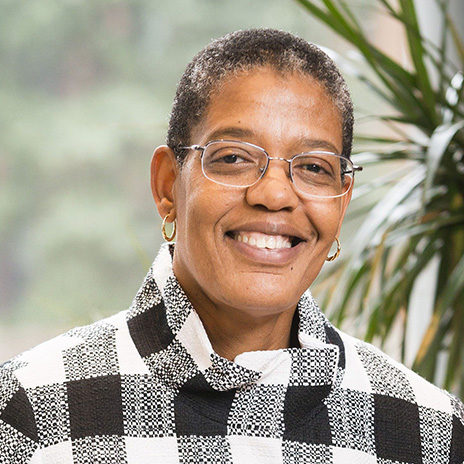
Michelle A. Williams, SM, ScD
“The greatest impediment to human flourishing really relates to social inequalities as well as limited access to quality healthcare.”
Michelle A. Williams is Dean of the Faculty at Harvard T.H. Chan School of Public Health and Angelopoulos Professor in Public Health and International Development. She is an internationally renowned epidemiologist and public health scientist, an award-winning educator, and a widely recognized academic leader. She also served as Professor and Chair of the Department of Epidemiology at the Harvard T.H. Chan School of Public Health and Program Leader of the Population Health and Health Disparities Research Programs at Harvard’s Clinical and Translational Sciences Center.
With emphases on reproductive and perinatal epidemiology, Williams uses biological and molecular biomarkers to measure and determine discrete outcomes of clinical, public, and global health importance. She has published more than 450 peer-reviewed research papers from studies of modifiable behavioral and environmental determinants of adverse health outcomes to genetic and genomic studies of common complications of pregnancy and chronic disorders among children and adults. She has also administered large-scale clinical epidemiology studies that seek to understand genetic and environmental causes of adverse pregnancy outcomes.
Previously, Williams was a Professor of Epidemiology at the University of Washington (UW), Co-Director of the Center for Perinatal Studies at the Swedish Medical Center in Seattle, and Affiliate Investigator at Fred Hutch. She also developed and directed the Reproductive Pediatric Perinatal Training Program at the UW, as well as the NIH-funded multidisciplinary international research training (MIRT) program supporting the development and operations of undergraduate and graduate student training in global health, biostatistics, and epidemiology in over 14 foreign research sites.
For her excellence in teaching, Williams has been honored with the Harvard Chan School’s Outstanding Mentor Award, the UW’s Brotman Award, the American Public Health Association’s Abraham Lilienfeld Award, and the White House’s Presidential Award for Excellence in Science, Mathematics, and Engineering Mentoring. She is a member of the National Academy of Medicine, the American Epidemiological Society, and the Society for Epidemiologic Research.
She received her A.B. in biology and developmental genetics from Princeton University, her M.S. in civil engineering and public health from Tufts University, and her S.M. in demography and population sciences and Sc.D. in epidemiology from the Harvard School of Public Health.





